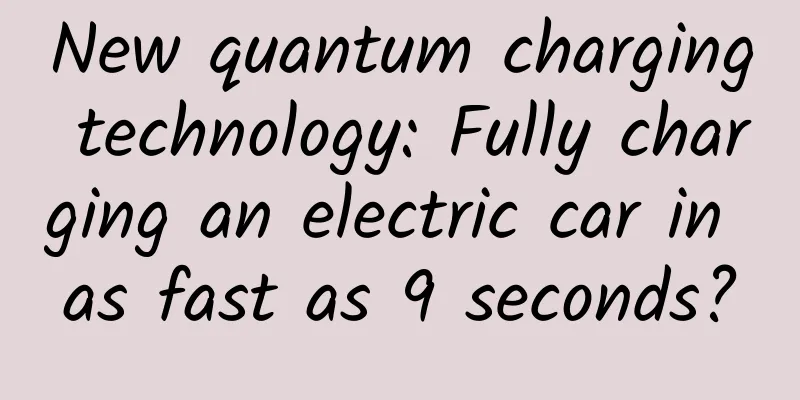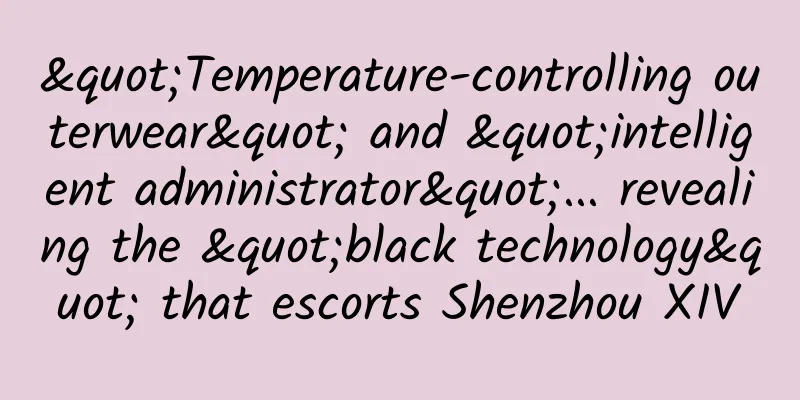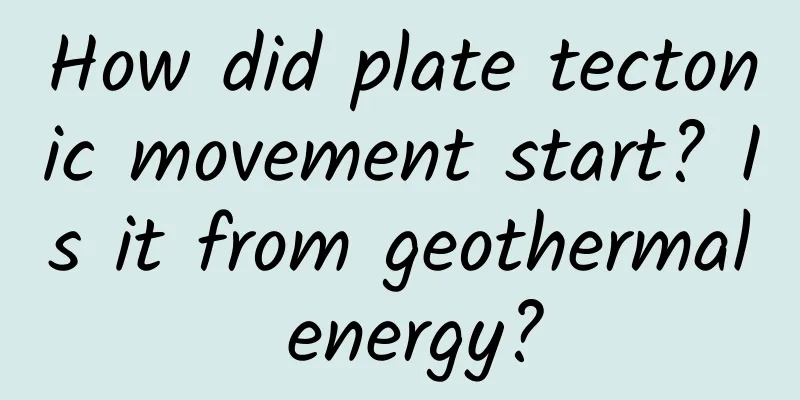New quantum charging technology: Fully charging an electric car in as fast as 9 seconds?

|
With the popularity of electric vehicles, more and more consumers are beginning to worry about charging. As for the electric cars currently on the market, it takes about 10 hours to fully charge at home. Even if you go to a dedicated fast charging station, it takes at least 20-40 minutes to fully charge a car. Obviously, the inconvenience of charging has also stopped many potential consumers from buying electric cars. So, are there any new technological breakthroughs to increase the charging speed of electric vehicles? Recently, scientists from the Center for Theoretical Physics of Complex Systems at the Institute for Basic Science (IBS) have proposed a new technical solution - quantum charging technology. Using quantum charging technology, the traditional electric vehicle charging process can be accelerated by 200 times, which means that the charging time will be reduced from 10 hours to about 3 minutes (at home), or from 30 minutes to 9 seconds at a charging station. The popularity and challenges of electric vehicles Whether it is photovoltaic or nuclear energy, human civilization will have to turn to renewable energy sooner or later. Considering the ever-increasing energy needs of mankind and the limited nature of fossil fuels, this trend towards renewable energy is considered inevitable. Therefore, in order to develop alternative energy, scientists have conducted a lot of research, most of which use electricity as the main energy carrier. With the widespread development of renewable energy, new products and equipment based on renewable energy have also developed rapidly. The most significant change is the rapid popularization of electric vehicles. Although electric cars were almost unheard of on the road 10 years ago, millions of them are now entering thousands of households every year. The electric car market has become one of the fastest growing new energy industries, and Musk has become one of the richest people in the world. (Source: Pixabay) Unlike conventional cars that derive energy from the combustion of hydrocarbon fuels, electric vehicles rely on batteries as a storage medium for their energy. However, the energy density of batteries has long been much lower than that of hydrocarbons, which has led to very low ranges for early electric vehicles. However, gradual improvements in battery technology have finally brought the driving range of electric vehicles to an acceptable level compared to fuel-powered vehicles. It is no exaggeration to say that improvements in battery storage technology are one of the main technical bottlenecks that must be solved to promote the current electric vehicle revolution. However, despite huge advances in battery technology, today's electric vehicle consumers still face another challenge - slow battery charging. Quantum charging technology To solve this problem, scientists began looking for answers in the mysterious field of quantum physics. Quantum technology could lead to new mechanisms for charging batteries faster, researchers have found. The concept of this "quantum battery" was first proposed in a seminal paper published in 2012. This discovery is particularly exciting because quantum resources could, in theory, greatly speed up the battery charging process by charging the cells within the battery collectively and simultaneously. (Source: Pixabay) Later, around 2017, it was noticed that there could be two possible paths behind this quantum advantage - namely, 'global operation' (all charging units are facing all other units at the same time, i.e. 'all sitting on one table') and 'all-to-all coupling' (each charging unit can face each other, i.e. 'only two players per unit'). However, it is unclear whether both possibilities are necessary and whether there are any limits to the charging speeds that can be achieved. In a newly published study, scientists explored these questions further. The paper, published in the journal Physical Review Letters, shows that all-to-all coupling is irrelevant in quantum batteries and that the presence of global operation is the only factor that contributes to quantum advantage. The team went further and pinpointed the exact source of this advantage, while ruling out any other possibilities and even providing a clear method for designing such a battery. Furthermore, the team quantified exactly how fast charging can be achieved in this scheme. While the maximum charging speed increases linearly with the number of cells for classical batteries, the research shows that quantum batteries with global operation can achieve exponential increases in charging speed. Figure | Comparison between current electric vehicles and future vehicles based on quantum battery technology To illustrate this, the researchers assumed a conventional electric car with a battery containing about 200 cells. Using this quantum charging technology, the charging speed will be 200 times faster than conventional batteries, which means that the charging time at home will be reduced from 10 hours to about 3 minutes. And through a fast charging station, the charging time will be reduced from 30 minutes to a few seconds. The researchers say the impact of this technology could be far-reaching, and the realization of quantum charging could extend far beyond electric vehicles and consumer electronics. For example, it could find critical use in future nuclear power plants, where large amounts of energy are needed to achieve instantaneous charging and discharging. Of course, quantum technology is still in its infancy, and there is still a long way to go before these methods can be implemented in practice. However, research results such as this one open up a promising direction and could inspire funding agencies and businesses to invest further in these technologies. If realized, it is believed that quantum batteries will revolutionize the way we use energy and bring us closer to a sustainable future. References: https://arxiv.org/abs/2108.02491 https://www.eurekalert.org/news-releases/946882 Source: Academic Headlines |
>>: He used himself as a test subject and invented spinal anesthesia
Recommend
16 Awesome E-Commerce Conversion Rate Optimization Strategies
This article introduces 16 optimization strategie...
Refined operational skills for overseas e-commerce!
Why do we need refined operations? I believe many...
Both are made of carbon, so why is graphite soft and diamond hard?
Produced by: Science Popularization China Author:...
Sales volume of branded smartphones in the Chinese market in July: OPPO ranked first, Honor ranked third, and Xiaomi ranked fourth
Unconsciously, we have come to the end of August....
Air travel will not return to normal until 2024. How much damage will the epidemic cause to the aviation industry?
Air travel won't return to normal until 2024 ...
The snowstorm has arrived! The Northeast has entered the heaviest snowfall period. Learn how to travel safely in this article!
As the cold vortex system moves eastward and sout...
How much does it cost to create a daily necessities mini program in Xiaogan?
How much does it cost to create a daily necessiti...
The "Ground Space Station" is here! Do you know the elements that make up the space station?
On February 27, my country's first "spac...
"Not being able to distinguish between left and right rotations" may be fatal. The Nobel Prize in Chemistry has solved a "thorny" medical problem
In the early 1960s, a notorious drug safety incid...
Be careful when taking a bath in cold weather! The bathroom heater may turn into a "destroyer"
Take a hot bath in cold weather It is undoubtedly...
Clinical diagnosis of depression and five practical treatments
An introduction to the clinical diagnosis of depr...
The sales of NIO, Xiaopeng and Li Auto have skyrocketed, but Tesla still outsells ten of its competitors by itself. How long will it take for domestic brands to take the center stage?
As April began, new car-making forces represented...
The top ten car brands with the lowest engine failure rate are released: BMW and Audi are out of the list, and the Civic ranks first
The automotive industry has the habit of selectin...
Oops! Why are all the cherries I bought deformed? Is it caused by pesticides?
Too long to read Don't worry, the appearance ...
How to make valuable competitive product analysis?
1. Why do we need to do competitive product analy...









